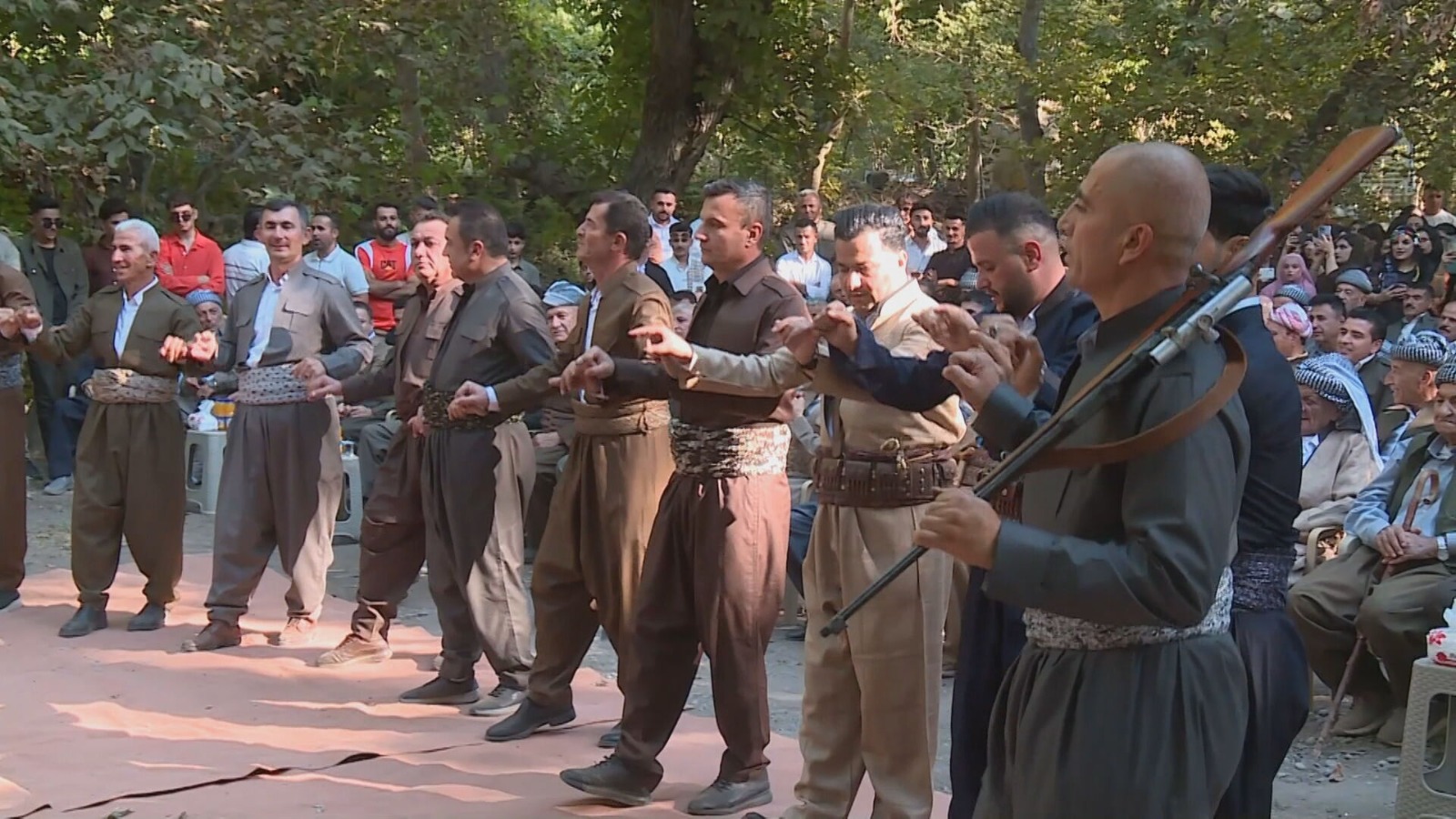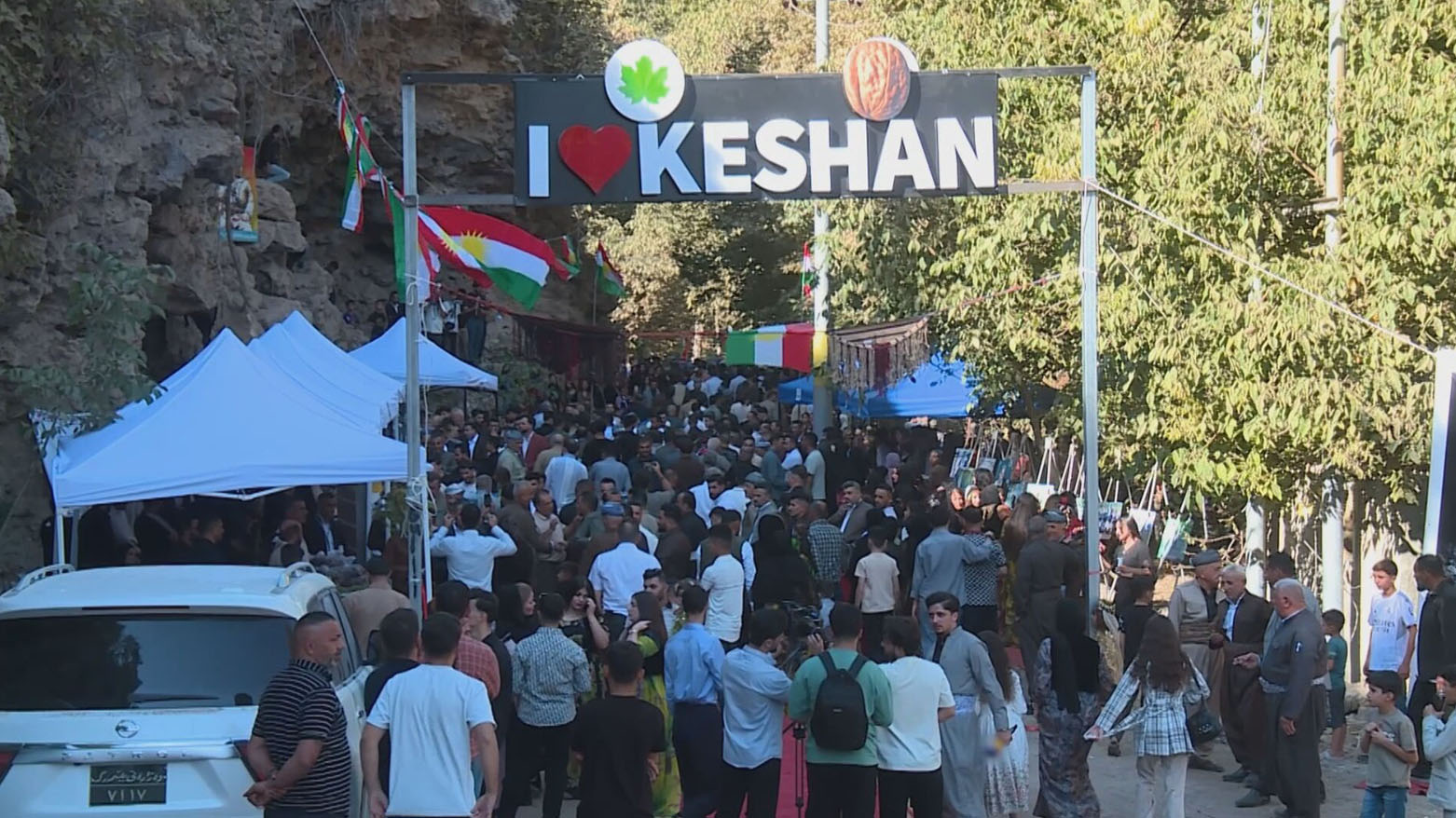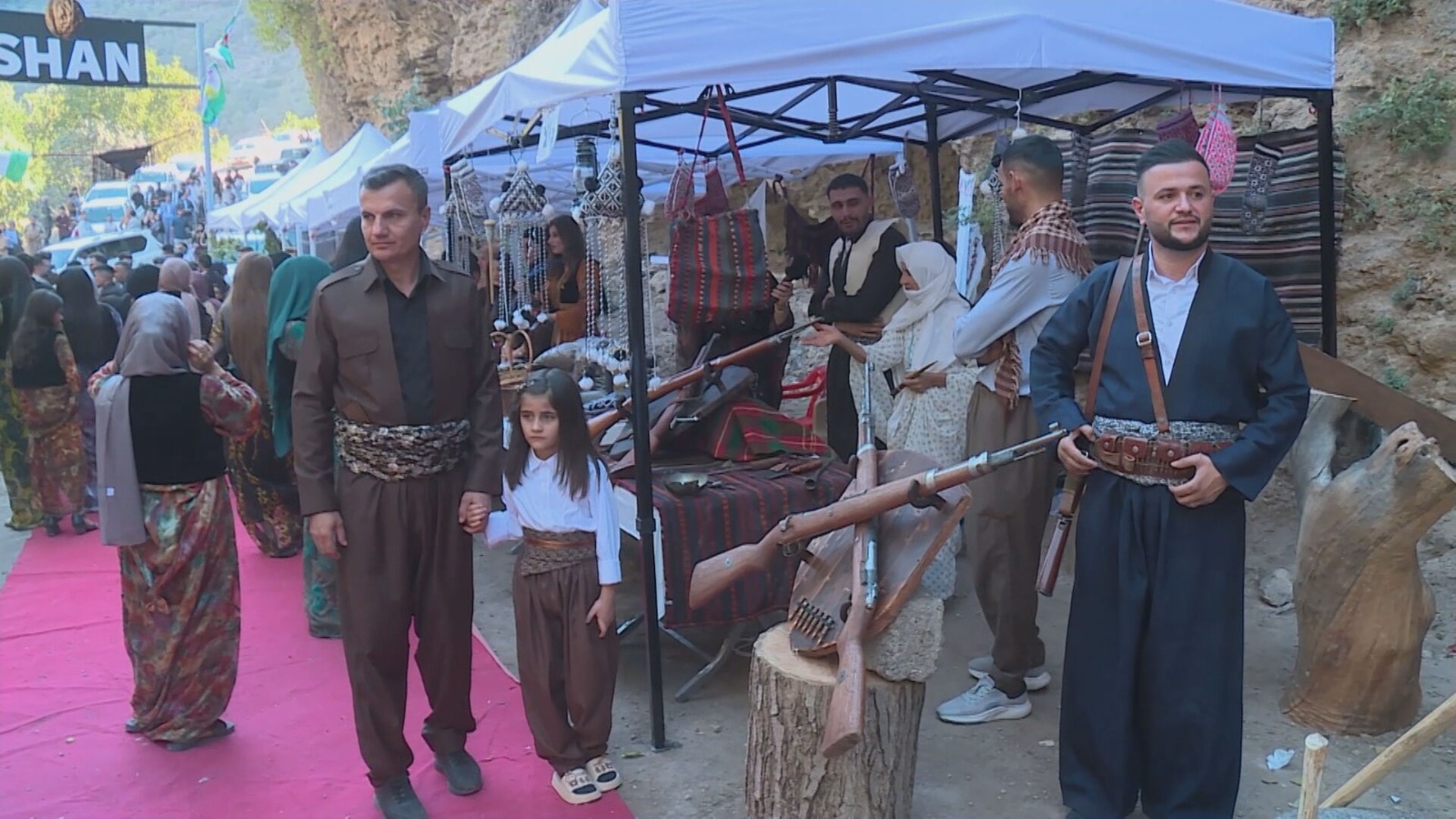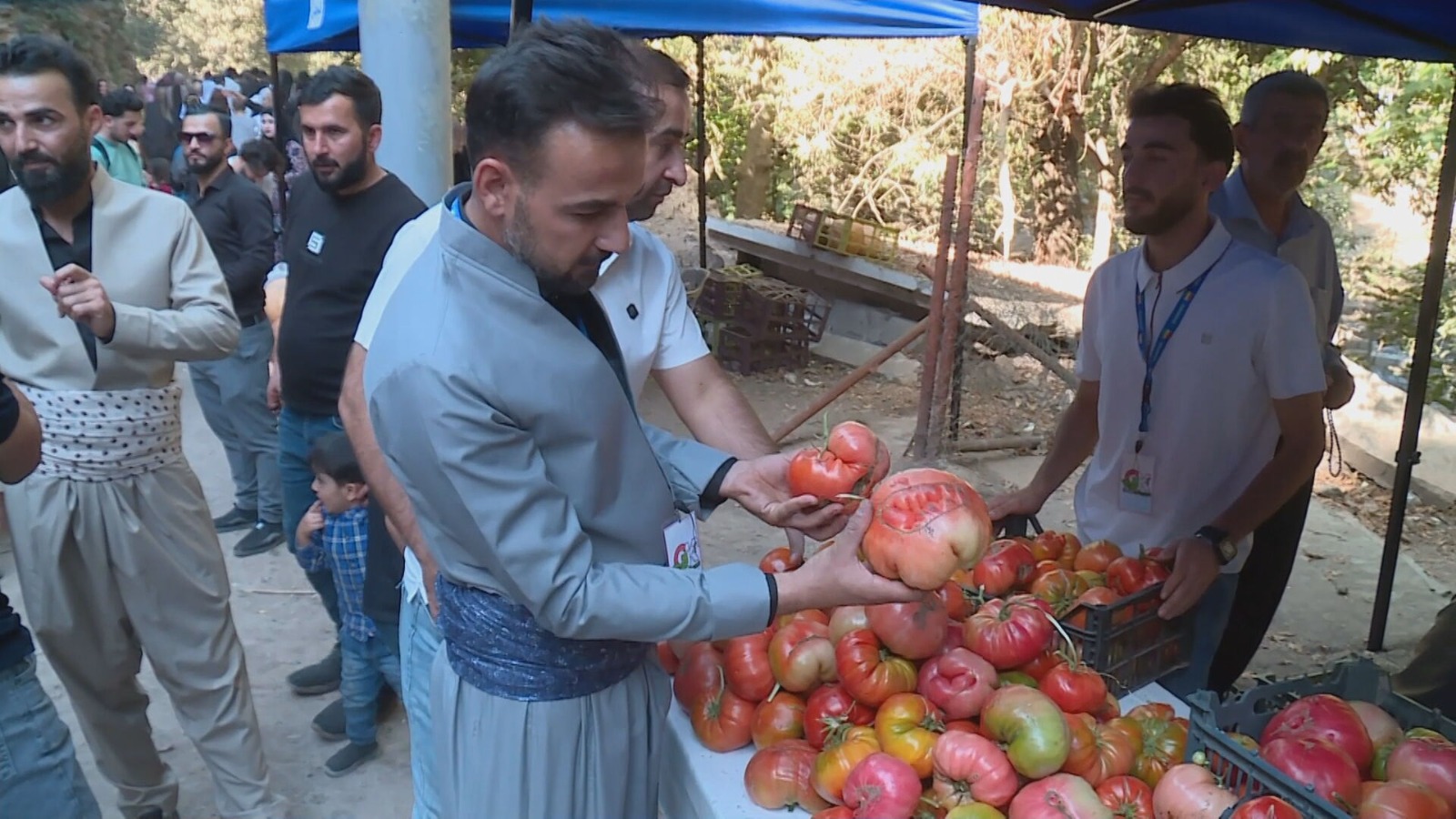After Decades of Conflict, Calm Allows Kurdish Border Villages to Rebuild Lives
Kurdish border villages in Zakho are celebrating their first annual festival after decades of conflict between Türkiye and the PKK disrupted daily life. Residents, once displaced by cross-border violence, are now rebuilding livelihoods and farming lands amid a fragile ceasefire.

ERBIL (Kurdistan24) – In a scene that few believed possible only months ago, the residents of Keshan, a Kurdish village in Zakho Independent Administration near the Turkish border, gathered this week to celebrate their annual village festival for the first time after decades. The event, once interrupted by cross-border violence between The Kurdistan Workers' Party (PKK) and Türkiye, has returned as a powerful symbol of peace, resilience, and renewal for border communities that have endured decades of insecurity.
The village’s annual festival, organized for the first time on such a scale, brought together farmers, families, and local producers to display agricultural goods unique to the region — including grapes, sumac, and fresh vegetables cultivated on lands that were long inaccessible due to military activity.
“Before, entering the village was impossible — it was a military zone,” said Walat Haji, a 40-year-old farmer who spent much of his life displaced from his ancestral home. Speaking to Kurdistan24, he said, “Today, thanks to the peace initiative, I’m witnessing this moment for the first time in forty years. I can’t describe how happy I am to see my village alive again.”
Another villager, Khabbat Abdul Sattar, described the profound change that peace has brought: “For years, we couldn’t stay in our village for more than a few hours before sunset — we had to leave because of fear. But today, everything is different. We can finally stay overnight, tend our lands, and live without that constant anxiety.”
For farmers like Maher Jamil, the festival represents more than just a celebration; it marks the return of dignity and livelihood. “This festival in Keshan is like a holiday for us,” he said. “It proves that life has truly returned to normal. Our products — especially our grapes — are now being displayed with pride instead of being left to spoil in abandoned orchards.”
Festival organizer Siban Nadhir noted to Kurdistan24, that this year’s event marks the beginning of a new chapter for the region. “This is the first edition of the Keshan Festival, and we hope it continues to grow in the coming years. Our dream is to make it larger and more inclusive each year so that all the surrounding villages can join in celebrating peace.”



For decades, the mountainous border areas of Zakho, Batufa, and Gara have been caught in the crossfire of the ongoing conflict between Türkiye and PKK. Since the 1980s, repeated cross-border operations, airstrikes, and artillery bombardments have forced residents to flee their homes and abandon their farmlands, creating a cycle of displacement and economic loss.
In previous years, villagers were often barred from entering their orchards or fields for days due to the clashes, rendering them unable to harvest or sell their crops. The disruption devastated local agriculture and left markets undersupplied, while the constant tension inflicted lasting psychological stress on residents.
This year’s ceasefire has allowed the villagers to return to their farmlands and restore a sense of normal life. Residents of nearby Dereşe village told Kurdistan24 that the past few weeks have been the calmest in years. “Our village suffered greatly from Turkish shelling. Our homes were hit, but we survived,” one villager said. “For the past twenty days, there have been no airstrikes or artillery attacks. Now we can finally work our fields without fear.”
The Turkish-PKK conflict has for decades affected the Kurdistan Region’s border zones, especially in areas like Qandil, Hakurk, and Gara, where military incursions and bombardments have caused extensive destruction to homes, roads, and agricultural lands. Villagers have long struggled with damaged infrastructure, limited public services, and the inability to plan farming seasons under uncertainty.
The repeated cycle of escalation and fragile truces has deprived communities of stability. Crops such as wheat, vegetables, and sumac have been lost, while schools and clinics in affected areas were often forced to close due to security risks.
Today, however, hope has begun to return. With the reduction in violence, local authorities are working to restore essential services, rebuild damaged properties, and support farmers in reviving agricultural production.
The Keshan Festival has thus become more than a cultural gathering — it is a collective declaration of endurance and optimism. For the residents of these borderlands, peace is not an abstract ideal but a tangible transformation that allows them to rebuild their lives, reconnect with their land, and regain economic stability.
“The return of peace means everything,” said one farmer while proudly displaying his vineyard’s produce. “If the calm continues, we can work freely, harvest our crops, and build a future for our children without fear.”
For the people of Keshan and the wider border region, this renewed calm carries a powerful message: that stability brings not only safety but also prosperity. After years of conflict and hardship, the sound of laughter and celebration once again echoes through the valleys of northern Zakho — a testament to the enduring spirit of the Kurdish people and their unyielding hope for lasting peace.